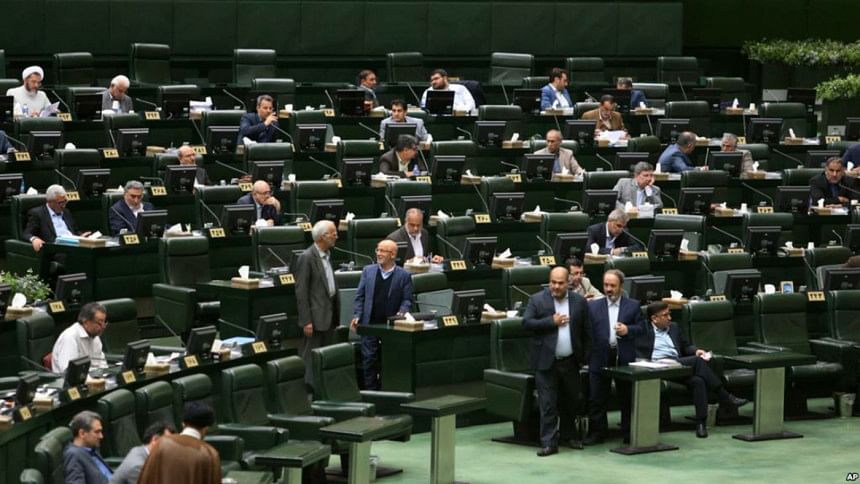Iran's parliament labels US troops in Mideast as terrorist

Iran's lawmakers on Tuesday overwhelmingly approved a bill labeling US forces in the Middle East as terrorist, a day after the US terrorism designation for Iran's Revolutionary Guard formally took effect, state TV reported.
Defense Minister Gen Amir Hatami introduced the bill authorizing the government to act firmly in response to "terrorist actions" by US forces. It demands authorities use "legal, political and diplomatic" measures to neutralise the American move, without elaborating.
The US move aims at "thwarting Iran's influence," and shows that America's longstanding sanctions against Iran have become ineffective, Hatami told lawmakers.
During the debate, some hard-liner lawmakers had demanded listing the entire US army and security forces as terrorist.
The TV report said 204 lawmakers approved the bill, out of 207 present at the session in the 290-seat chamber. Two lawmakers voted against the bill and one abstained.
However, it remains unclear how the bill's passage in parliament would affect the Gourd's activities in the Persian Gulf, where the US Navy has in the past accused Iranian patrol boats of harassing American warships.
The Revolutionary Guard has forces and wields influence in Iraq, Syria, Lebanon and Yemen, and is in charge of Iranian missiles that have US bases in their range.
The Guard's designation — the first-ever for an entire division of another government — adds another layer of sanctions to the powerful paramilitary force and makes it a crime under US jurisdiction to provide it with material support.
Iranian media reported Tuesday that Instagram suspended accounts believed to belong to four Guard commanders, including its commander, Gen Mohammad Ali Jafari; the leader of the Guard's foreign wing, or Quds Force, Qassem Soleimani; Chief of General Staff of Iranian Armed Forces Maj Gen Mohammad Hossein Bagheri, and one of his deputies, Gen Musa Kamali.
Depending on how broadly "material support" is interpreted, the designation may complicate US diplomatic and military cooperation with certain third-country officials, notably in Iraq and Lebanon, who deal with the Guard.
President Donald Trump and Secretary of State Mike Pompeo announced the designation with great fanfare last week.

 For all latest news, follow The Daily Star's Google News channel.
For all latest news, follow The Daily Star's Google News channel. 



Comments